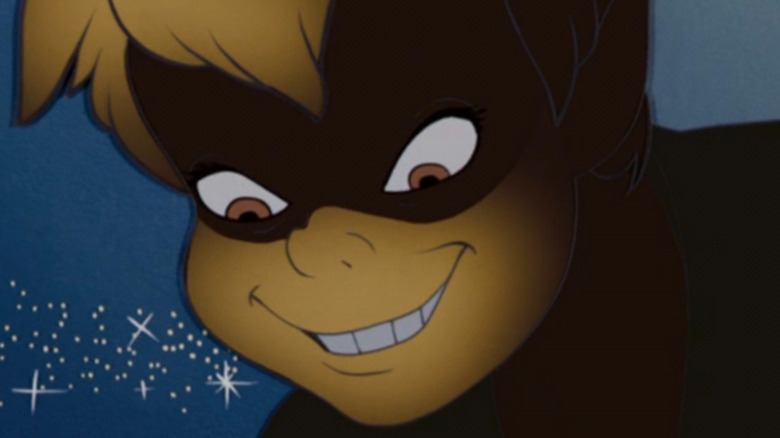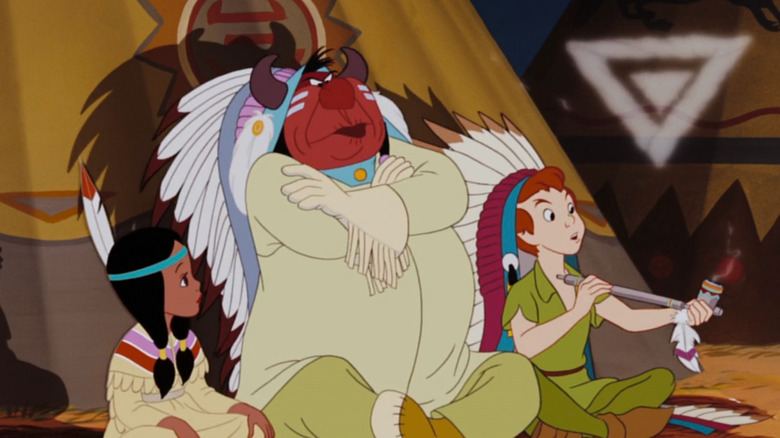The Peter Pan Controversy Disney Probably Doesn't Want You To Remember
Released during the company's Silver Era of the 1950s and early 1960s, "Peter Pan" is amongst the most well-known versions of the classic J.M. Barrie play of the same name. The film follows the story of a group of children who meet the boy who will never grow up, Peter Pan, and travel with him to Neverland where they go up against the nefarious Captain Hook. A project Walt Disney wanted to make since the late 1930s, the film would eventually be released in 1953 to box office success, earning a lifetime gross of nearly $90 million worldwide (via Box Office Mojo). It has largely been revered as a Disney classic (via Rotten Tomatoes), with much of its legacy being seen in the character of Tinkerbell, who starred in a series of 3D animated spinoff films and whose shining light continues to be shown all throughout Disney's logos.
Although largely seen as a classic, "Peter Pan," as with several Disney films from this time and earlier, is not without its controversies. And while some critics might note its lack of faithfulness to the original play as one of its biggest issues, modern audiences have an even more pressing concern with "Peter Pan" that has certainly not improved with age.
The film's depiction of Native Americans is super dated
From 1941's "Dumbo" to 1992's "Aladdin," Disney has had a history of featuring several problematic racial stereotypes in their films. "Peter Pan" exhibits one of their most infamous examples with the Native American tribe. The tribe captures the Lost Boys, as well as John and Michael Darling, believing them to be responsible for the kidnapping of Princess Tiger Lily. After being rescued from Captain Hook by Peter Pan, the tribe celebrates with a musical number.
The original J.M. Barrie play has had a history of insensitivity to Native Americans (via Smithsonian Mag) and the Disney adaptation doesn't make any significant attempts to update this element. Many harmful slurs are used, including "Injuns" and a particularly awful one used by Captain Hook that caused controversy for a certain Washington football team. The depictions themselves are equally problematic, with stereotypical designs and speech patterns. To top it off, the song "What Makes the Red Man Red" has some offensive implications, claiming that they gained their skin color after blushing from being kissed by women.
The scene is a hard one to defend, with one of the animators of the film, Marc Davis, saying on the audio commentary of the "Peter Pan" Platinum Edition DVD, "I'm not sure we would have done the Indians if we were making this movie now. And if we had we wouldn't do them the way we did back then." Today, the film is available on Disney + in its uncut form, but features a content warning at the beginning and is only available for users seven years old or older (via WDW News Today).

